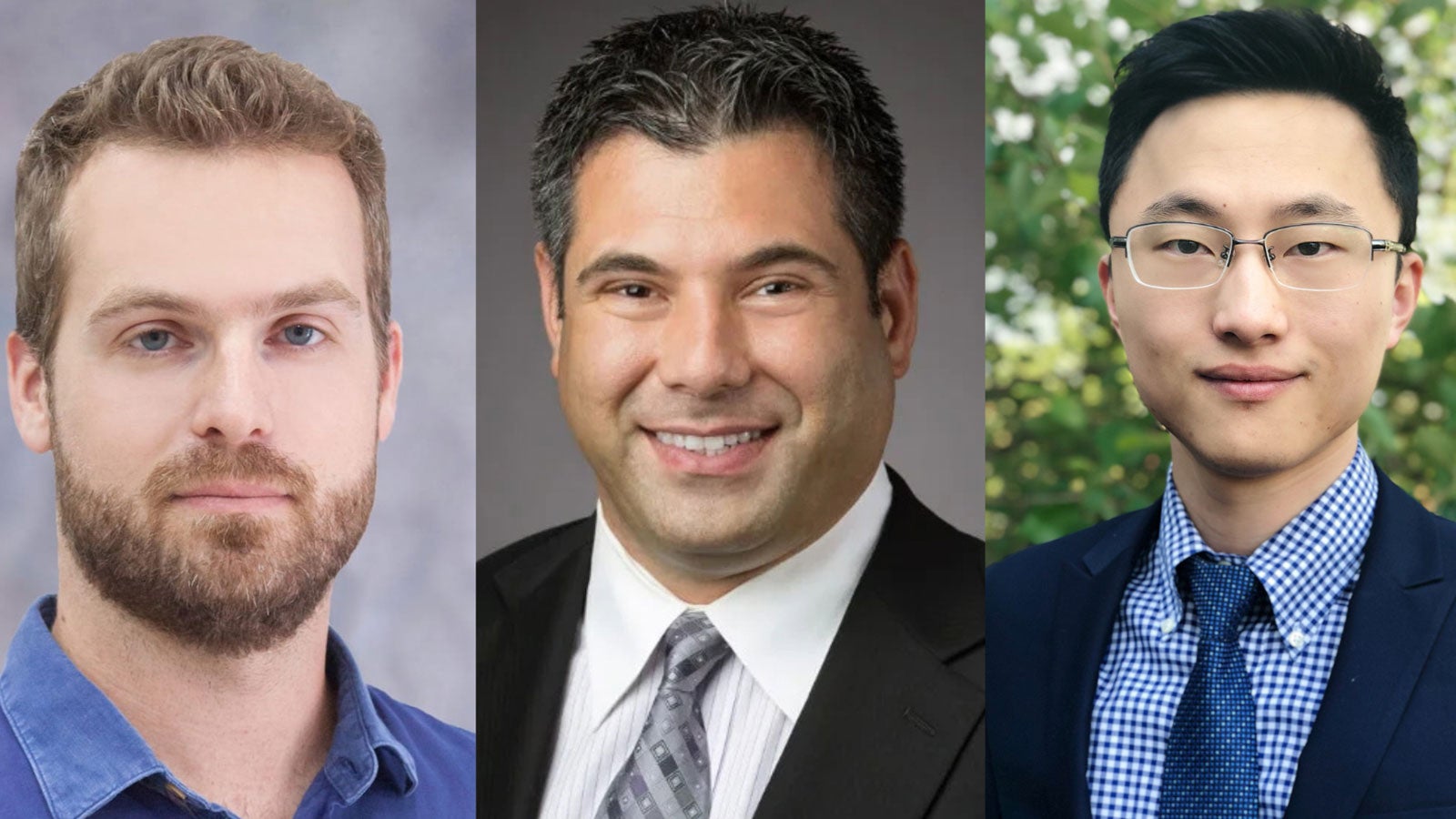The newly created Dean Fellows (DF) program is designed to enhance the research mission of the George R. Brown School of Engineering and Computing while cultivating future faculty leaders.
“Each fellow will help lead the strategic planning effort and serve as a key liaison for a specific research theme, ensuring the effective integration of the university’s and school’s strategic plans,” said Luay Nakhleh, the William and Stephanie Sick Dean of the George R. Brown School of Engineering and Computing.
The inaugural fellows and their research areas, announced by Nakhleh and effective Jan. 1, are:
Computing and AI
Anastasios “Tasos” Kyrillidis, the Noah Harding Associate Professor of Computer Science
Health
Omid Veiseh, professor of bioengineering, CPRIT Scholar in Cancer Research and director of the Rice Biotechnology Launch Pad
Sustainability
Haotian Wang, associate professor of chemical and biomolecular engineering, of materials science and nanoengineering, and of chemistry
Nakhleh said the Fellows will collaborate closely with him and the school’s senior leadership to guide initiatives related to key drivers in their areas and plan corporate affiliate programs. The Fellows will serve as primary contact for the assistant dean of marketing and communications and the senior director of development.
“As Dean Fellow for Computing and AI,” Kyrillidis said, “I’ll serve as a bridge between our technical innovations and their responsible implementation. I aim to champion initiatives that position our school at the forefront of AI advancement while ensuring our research benefits humanity through ethical and sustainable computing solutions.”
The Fellows will be invited to attend monthly Engineering Council meetings during the fall and spring semesters, and will be required to participate in Engineering Advisory Board meetings twice a year. They may also be asked to meet with potential donors once or twice a year.
“It’s an exciting time for health innovation at Rice and in the city of Houston, with all the new investments in biotechnology and the development of the Helix Park Campus,” Veiseh said. “I’m excited to work with colleagues across the school to help forge new opportunities to elevate the impact of their research.”
“Rice and the school are situated in the energy capital of the world, playing a pivotal role in fostering innovation and nurturing it into transformative solutions to address the pressing sustainability challenges of our time,” Wang said. “I am committed to collaborating with colleagues across the school, uniting diverse research efforts under the sustainability umbrella, and forging strong partnerships with energy and sustainability industries to drive impactful change.”
Appointment to a renewable two-year term as Dean Fellow comes with a $10,000 annual salary supplement, access to a maximum of up to $10,000 annually for relevant activities (events, speakers, retreats, etc.) and membership in the school’s senior leadership while holding the appointment.

